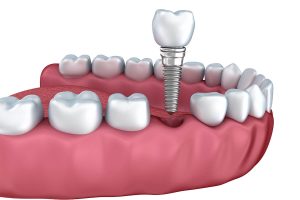
As people age, maintaining a healthy and confident smile becomes increasingly important. Unfortunately, tooth loss is a common issue among the elder population, often leading to difficulties in eating, speaking, and social interaction. Fortunately, modern dentistry offers a reliable, lasting solution: dental implants. This article explores the life-changing benefits of Dental Implants Dubai for the elder, shedding light on the process, the advantages, and essential post-treatment care.
What Are Dental Implants?
Dental implants are artificial tooth roots, typically made from biocompatible materials like titanium. These implants are surgically inserted into the jawbone to support replacement teeth such as crowns, bridges, or dentures. Unlike removable dentures, dental implants provide a stable and permanent foundation, mimicking the natural structure and function of real teeth.
For elder individuals experiencing tooth loss, dental implants can restore both aesthetics and functionality, improving quality of life in ways that traditional dentures may not.
Why Are Dental Implants a Preferred Option for the Elder?
Tooth loss in older adults can occur for various reasons, including gum disease, tooth decay, and age-related wear. While removable dentures have long been a go-to solution, they often come with inconveniences like slipping, discomfort, and dietary restrictions. Dental implants, on the other hand, offer a secure and dependable alternative.
Implants bond naturally with the jawbone, preventing bone loss and maintaining facial structure, a critical factor as bone density diminishes with age. Additionally, implants allow the elder to enjoy their favorite foods without fear of movement or pain.
The Dental Implant Process: Step by Step
Understanding the implant procedure helps ease concerns and highlights the simplicity of this life-enhancing treatment.
The process typically begins with a detailed dental examination, including X-rays or 3D imaging to assess bone health and oral structures. After confirming suitability, the dental professional will schedule the implant placement.
During the procedure, the implant post is placed into the jawbone under local anesthesia. A healing period follows, usually lasting a few months, during which the implant fuses with the bone in a process known as osseointegration. Once the implant has firmly integrated, a custom-made crown, bridge, or denture is attached to complete the restoration.
Post-procedure care is straightforward and includes regular dental visits, good oral hygiene practices, and following dietary recommendations during the healing phase.
The Transformational Benefits of Dental Implants for the Elder
Dental implants offer more than just an attractive smile. For older adults, they bring physical, emotional, and social benefits that significantly improve daily living.
Improved Chewing and Digestion
Missing teeth or ill-fitting dentures often limit food choices, affecting nutrition and digestion. Dental implants restore full chewing ability, enabling elder individuals to enjoy a varied and balanced diet. Better chewing promotes improved digestion, supporting overall health and vitality.
Enhanced Speech Clarity
Tooth loss or unstable dentures can affect speech, leading to embarrassment and self-consciousness. Implants provide stable support for artificial teeth, helping maintain clear and confident communication without fear of slipping or clicking.
Increased Self-Confidence and Social Interaction
A beautiful, functional smile encourages greater self-esteem and social engagement. Many elder patients report feeling more outgoing and happier after receiving dental implants. Whether attending family gatherings, social events, or simply enjoying daily conversations, implants help foster a sense of normalcy and joy.
Prevention of Bone Loss and Facial Collapse
When teeth are lost, the underlying jawbone begins to shrink, leading to facial sagging and an aged appearance. Dental implants stimulate the bone, preserving its volume and density. This not only maintains facial structure but also supports neighboring teeth and improves oral health.
Long-Lasting Durability
Unlike removable dentures or bridges, which may require frequent adjustments or replacements, dental implants are designed to last for many years with proper care. They offer a durable, permanent solution that gives elder patients lasting peace of mind.
Common Questions About Dental Implants for the Elder
Many elder individuals considering dental implants have similar questions about the treatment’s suitability and outcomes.
Is age a limiting factor for dental implants?
Age alone is not a barrier. What matters is overall health and sufficient bone density. Even individuals in their seventies, eighties, or beyond can successfully receive implants.
Does the procedure involve pain?
The implant placement is typically performed under local anesthesia, ensuring comfort during the procedure. Mild discomfort may follow, similar to that of a tooth extraction, and can be managed with routine pain relief measures.
How long does the healing process take?
Osseointegration usually takes a few months, depending on individual healing capacity. Once complete, the final restoration is placed, providing a seamless and natural-looking result.
Post-Treatment Care and Maintenance
Maintaining dental implants is straightforward. Good oral hygiene, including regular brushing, flossing, and routine dental visits, is essential to ensure the Dental Implants in Dubai remain healthy and functional. Avoiding habits like smoking and excessive consumption of hard foods will also help extend the longevity of implants.
Implants, much like natural teeth, require professional cleaning and monitoring to detect any early signs of complications. With attentive care, they can serve as a lifelong solution.
Conclusion
Dental implants have transformed the lives of countless elder individuals, restoring not only their smiles but their ability to eat, speak, and live confidently. Beyond cosmetic appeal, implants offer essential health benefits, prevent bone loss, and support overall well-being.